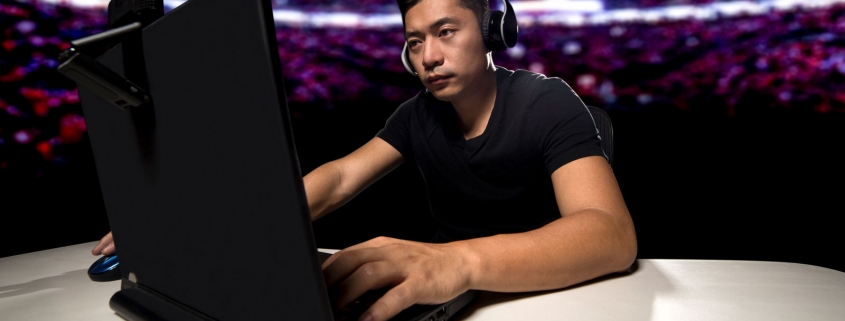Gaming Events are a Proving Ground for Future Consumers
Written by Luke D’Arcy, UK President at Momentum Worldwide
When the Virtual Becomes Reality
In one fell swoop, the role of gaming in society has evolved from a niche bedroom pastime to a multibillion dollar industry, centered around live events — from esports to expos and much in between.
For brands, the possibility to reach legions of young, highly engaged fans is a marketing panacea. Sponsorship deals and product placement abound, sold-out stadiums the world round, enormous prize money and millions of viewing hours of streamed material.
Moreover, the world of gaming is a proving ground for brands. Take Forza for example — what’s to say the young people playing racing games today won’t want to buy supercars in the future?
So what do the uninitiated need to know about live gaming events?
Competitions vs. Expos
Live gaming events typically fall into two categories: Competitions and Expos.
Although local competitions are still held in hotels and retail fronts, major competitions are increasingly being staged in large sports arenas. Last year, the Millennial Esports arena opened in Las Vegas and hosted the 2017 Halo World Championships.
Competitions to be aware of: League of Legends World Championships, ESL One, Call of Duty World Championships.
Expos to be aware of: Electronic Entertainment Expo (E3), Tokyo Game Show (TGS), PAX, ChinaJoy.
Traditional sport and esports are merging
With the increasing acceptance of gaming as a sport (63% of gamers believe it should be a sport), traditional sports events are also integrating an esports component in their offerings.
Super Bowl organizers host an annual Madden competition the night before the event featuring top “Madden Pros” in addition to well-known “NFL Pros” like Cam Newton and LeShawn McCoy. Esports have also been included in the schedule for the 2022 Asian Games, with many seeing this as the next step to inclusion in the Olympics. The NBA has also invested in its own esports league, the first major sports league to officially promote esports.
Why do people go?
Forget stereotypes, gamers are a social bunch. The number one thing they do at these events is meet up with friends (53%).
In fact, 62% say that gaming has helped them connect with other people, 59% say gaming brings them closer to people like them and 57% see gaming as a cultural bridge.
A further 48% of attendees say they go to watch a competition, 44% visit a gaming sponsor, exhibit or experience, and 40% say they buy video gaming related products.
Who are they?
Live events offer the opportunity to reach a young, high income audience that is willing to spend money to travel to large cities to attend. Although the audience at live events skews male, there is a contingent of female fans at these events (1-out-of-3 are likely to be female).
It is important to keep in mind that just as the gaming population is diverse, so is the live event population. Everything from the type of event to game genre can impact the makeup of the audience.
We have more in our recent whitepaper about who attends what events – and what might be best for your campaign.
Brands at gaming events
Brands are an integral part of the live event experience for gamers.
59% of attendees say they have interacted with a brand at a live gaming event. And, a brand’s presence is welcome—68% of gamers believe brands are good for the gaming industry and half would like to see more brand sponsorship in the gaming world.
However, brand interactions can definitely be improved. Just one third (32%) are completely satisfied with the sponsorships and advertising at live events, with attendees generally finding non-endemic brand booths basic and bland. Overall, only 43% feel player and team sponsorships are authentic. Clearly, there is opportunity to improve.
Here are some things to think about:
- A unique, interactive experience with relevant content is guaranteed to attract crowds: At San Diego Comic Con, lines for experiences tied to popular properties went out the door and were hours long. Partnering with a rights holder to generate unique content can help create engagement with your brand.
- Do not rely on stereotypes: Gamers are a diverse demographic, ranging from young to old and male to female—and nothing annoys gamers more than brands who resort to old stereotypes of who a gamer is.
- One size does not fit all: Fans of the different properties are different from each other. Activating around a MOBA property (i.e., League of Legends) will be able to get creative around the activations. A brand activating around a shooter event (e.g., ESL One) should focus more on offering fans something that will help their own game play.
- Don’t sell—let them engage: Fans don’t want to feel pressured to buy something. Instead, let them understand your “brand experience” through unique activations. Avoid simple sign ups.
- Give fans what they want: Fans accept advertisers as necessary and even desirable in order to “legitimise” events. However, fans want something in return for their eyeballs. This could be in the form of a unique experience, making the event more comfortable for them, SWAG, pre-sales, or a financial commitment to their favorite players




Leave a Reply
Want to join the discussion?Feel free to contribute!